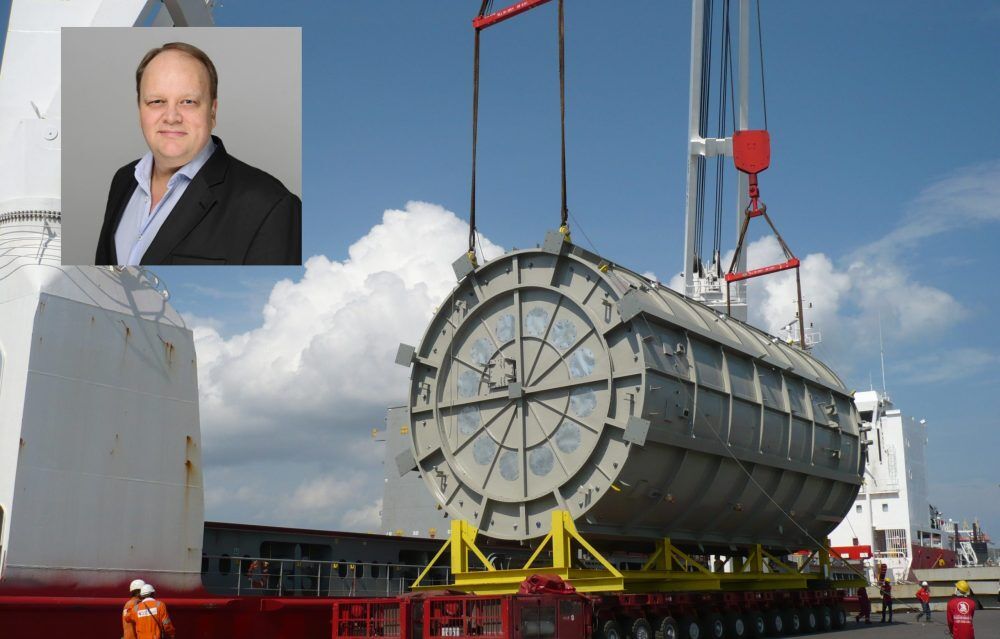
Opinion Piece: Brought to you by Lars Greiner, Associate Partner at HPC Hamburg Port Consulting GmbH.
Over ten years ago now, I left the freight market because I no longer believed it was a fair or efficient way for the international supply chain to operate. The system is antiquated but has been kept upright because the people operating within it benefit from its inefficiencies, namely the cargo owners and consumers.
The freight market is an ancient system whereby the master of a vessel, historically the owner, would agree to carry and sell the goods for the cargo owner in a distant land. He would sell or trade them for goods to be sold in his homeland again, and the profit after his expenses and commission would then be split proportionally between all the cargo owners. The risk and profit were jointly shared and realised.
This system relied on personal relationships and trust with middle parties, which later grew different specific specialisations, such as shipbrokers and freight forwarders, to support the ship and cargo owners, respectively, as the processes became more complex and complicated. Though the industry has changed immensely, the two key parameters remained the same until the late 20th century. With the advent of the internet and modern communications, relationships and trust started waning.
We went horribly wrong, and mutual distrust has long been the modern facet, with parties giving each other misinformation to ensure their cargoes or ships were preferred or blaming each other for when things have gone wrong. It has created a culture of animosity between the cargo and shipping industry that now sits deep, and it is thus no surprise that many used this to maximise their portion of the profits in the ‘greed is good’ era starting in the late 1990’s. I simplify for this discussion, but there may be many brokers and freight forwarders in any transport transaction, each buying and selling their services on a margin. That means many parties in the chain are not necessarily adding value but adding cost.
With the rise of digitalisation and the IoT, the need for this personal relationship has been lost. Yet the industry has continued to fight, for over 20 years against automated tariffs or pricing platforms and the retention of personal rate agreements, even when the reasoning behind this was subjective at best.
The fight has generally been in the trenches, with the cargo owners and actual vessel owners on the sidelines and the shipping agents, shipbrokers, cargo brokers, and freight forwarders duking it out for their share of the profits. Some traditionalists are trying to eek a living on the 1,25 – 2,5 percent of gross freight that shipbrokers historically requested. Others earn handsomely buying and selling freight on a margin, sometimes with up to 100 percent markup. Neither of these models is sustainable, nor are they fair or add any real value.
The shipping lines are the losers in the old model of freighting as they were at the competitive end of the chain, with all those between them and the cargo owners adding margins. At the other end of the chain, cargo owners, with parties beating down the doors to get their hands on their transport orders. They were treated like mushrooms and kings at the same time. Most cargo owners do not know or care about the intricacies of the supply chain, only that their cargo moves to their customer without getting damaged and in an adequate transit time. Between the ship and cargo owners, a mysterious black box has long existed for most outsiders.
With the advent of Covid 19, this relationship and networking base has been tested to the limit, with most striving for a greater digitalisation of the entire transport process. The veil on the black box has now begun to lift. The end goal must be to create an efficient end-to-end supply chain and keep international trade prices in line with the actual value of the goods and affordable for all.
I have now seen calls by various parties, including FIATA calling on the fairness of the shipping lines in raising their prices. I agree it may not be fair. They are very clearly profit taking for all the times when they were not able to before. However, for the sake of the whole transport industry, all the involved parties must put their animosity aside and return to a mutually beneficial outcome. This must be a cost-effective, highly efficient, and transparent supply chain, where each is rewarded fairly for their value-added to this process.
What’s fairness got to do with it? Everything, if we want a sustainable trading environment.
++
-If you have an opinion to share with us, please email it to editor@breakbulk.news

